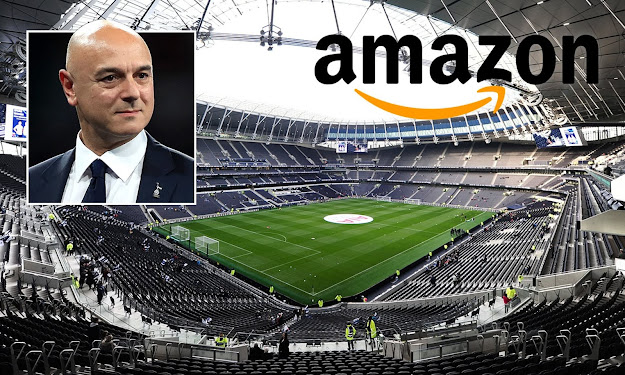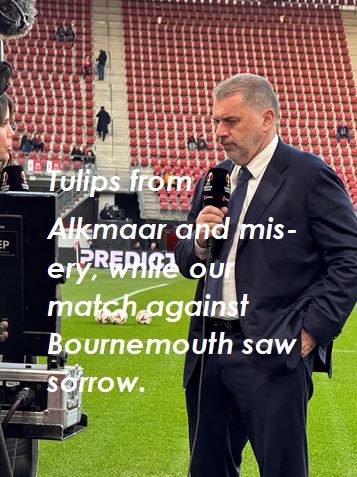Ray Clemence: Tottenham goalkeeper was 'one of the world's best' (a Tribute).
Ray Clemence: Tottenham goalkeeper was 'one of the world's best.'
Rau Clemence was a great goalkeeper, who not only played for us but
also Liverpool and England as well. He was only 72 when he died (what a young
age!).
I remember watching him – against us – when he played for Liverpool. On
the day he joined us, I actually got to meet him (as he arrived at the stadium).
He was a great catch (that is for us, and of the ball). Since then, and over
the years, I've shared a drink with him and chatted about old times with him.
When he returned to Liverpool – playing in our goal – he got a tremendous
reception. Always well respected. The same for Jennings, when he left for Arsenal,
and then came back, he always got a great reception. Unlike the Sol man, but
that is another story, which we don't want tainted here.
Skegness-born Clemence was a key component of great Liverpool sides
under Bill Shankly and Bob Paisley in the 1970s and early '80s that swept all
before them at home and abroad before he left Anfield to enjoy more success at
White Hart Lane.
He won an extraordinary 61 England caps over 11-years of International
football. Unfortunately for him he had to compete with Peter Shilton and could
have won more.
After retiring from football, he pursued a managerial career at Barnet
and was also part of the coaching team at Spurs before becoming an essential
member of England's staff.
He was spotted by Liverpool manager Shankly playing for Scunthorpe
United and was signed in an £18,000 deal in June 1967. He started off as an
understudy to the great Tommy Lawrence. But once Shankley decided to change his
old stale team, he went for the young Ray to be his last line of defence.
Shankly's great team won the League title and Uefa Cup in 1972-73, a
feat they repeated in 1975-76. Triumphs in Europe coming over Borussia
Monchengladbach and Club Bruges. The FA Cup was sealed with a 3-0 win over
Newcastle United in 1974 before winning the Champions Europan Cup Final 3-1 over Borussia Monchengladbach in Rome. In
that season Liverpool had won the title
once more.
He won two more European Cups, against Club Bruges in 1978 at Wembley and
Real Madrid in Paris in 1981. He then shocked everybody by requesting to leave
the club and joined us weeks after that great victory for him.
The trophies he won when he left Liverpool was five titles, three
European Cups, two Uefa Cups, the FA Cup and the League Cup over 665 first-team
appearances. An amazing record.
Liverpool's 3-1 win on that emotional day confirmed another title but
this time the player who had enjoyed all the old glories was an outsider
looking in as Bruce Grobbelaar, who had been signed in 1981 to provide
competition for Clemence, had assumed his former position in goal.
Upon joining our incredible team of the 80s – 10 days after joining us –
he won the FA Cup, this was against QPR at the old Wembley. I was there. Not a
great game, but we did what we set out to do.
Back then we had a good side, only just missing out on winning the
title. In 1983/84 we won the UEFA Cup over
two legs. Unfortunately for Clemence, but not unfortunately for Tony Parks, he wasn't
in goal; it was Parks who was in goal and helped us win the UEFA Cup.
Ray was in goal for the1987 FA Cup final which we lost 3-2 to Coventry
City, before an Achilles tendon injury sustained at Norwich City later that year
effectively ending his career.
He made his final international appearance in November 1983 in
Luxembourg at the age of 35. He captained England in a friendly against Brazil
in May 1981, the first keeper to lead out his country since Frank Swift in the
1940s.
As I said previously, Ray spent several years as Spurs coach after
retiring, working alongside his former Liverpool team-mate Doug Livermore with
the first team, and also had a spell at Barnet as manager.
He was awarded the MBE for services to football in 1987. He retired in
2013.
He will be remembered as one of the great goalkeepers for both Liverpool
and Spurs.
After he retired, I met up with him at Wembley and our new stadium on
many occasions. He was always happy to chat and have a drink with old friends
and fans names. He loved talking about old times and always remembered his fans, or at
least those that often spoke to him regularly.
The last time I met up with him was last season—a sad loss.
Best regards, Glenn
COYS!












Comments
Post a Comment